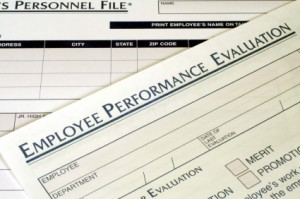 In my long corporate life, I faced this time of year with a mixture of anticipation and dread.
In my long corporate life, I faced this time of year with a mixture of anticipation and dread.
The anticipation came because raises and bonuses were doled out in January and February. The dread was that I had to meet with my manager or supervisor to get my annual performance review. (It was never clear if these meetings were more painful to them or to me.)
Having been on both sides of the review, I know that many of the meetings were neither helpful nor satisfying.
Why? There is the usual fallacy that feedback given once a year (versus frequently) is effective. (Have you ever noticed that the once-a-year variety is often focused on what happened in the last month?) Another common failing occurs when the review meeting is a one-way communication. That is, the manager “announces” to a passive employee the corporate numerical judgment of the employee’s performance. What about those numbers? You know, the manager gives you a score in each performance area. They tell you that your organization skills are a four. Meanwhile, your innovation rating is 3.75. What do you do with such scores? We could go on and on about the weaknesses of these systems. My blood pressure is being to rise just recalling those days. Repeat, must be calm …
Still, the ideas behind the annual feedback cycle are laudable.
One principle is that the employee deserves honest feedback about their performance. It is even better to have an ongoing feedback dialog throughout the year. Secondly, it is equally important that the organization declare what is important. Many times, the definition of performance categories and scales for the performance signal what is important. Ideally, the categories are highly tailored to specific jobs. That way, the feedback is far more targeted and (potentially) useful. When done well, the review transmits useful information in both directions.
What would a good review for a competitive intelligence person look like?
This is the review that I would give if I was the strategy manager (customer of competitive intelligence) and the one I would like to get if I was the competitive intelligence manager. It contains a difficult set of questions. They are difficult because they are intended to focus on value and impact versus activities and tools. There are 10 fundamental performance areas abd 50 questions to discuss.
Read the rest of this entry


 A CEO faces a decision about whether to make an investment in a new product line that requires significant capital. Does he need any competitive intelligence?
A CEO faces a decision about whether to make an investment in a new product line that requires significant capital. Does he need any competitive intelligence?